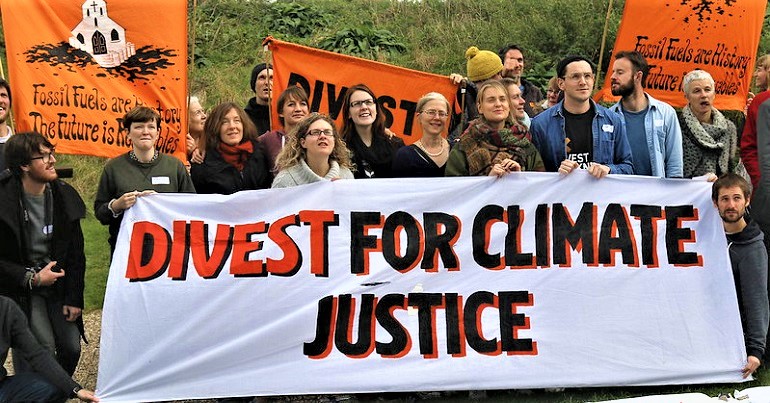Outing the UK Government: Corporate financing at #COP23
Government hypocrisy and corporate interest are very well acquainted, and they were last spotted at COP23 (the annual climate conference to the United Nations Framework Convention on Climate Change) nuzzling in the UK Pavilion. Whilst this space existed to showcase the UK’s role in tackling climate change ,it was grossly compromised by its sponsorship. This year, ‘supporting partner for the UK Pavillion at COP23’ was Barclays Bank.
In 2016 alone, Barclays have financed fossil fuel extraction to the tune of $4bn, reports People and Planet. Through investment, they’ve dirtied their hands in coal, liquefied natural gas (LNG) exports and extreme oil from North Yorkshire to the Dakota Access Pipeline. Between 2014-2016 Barclays spent $13 billion on such projects, says a report by RAN, BankTrack, Oil Change International and the Sierra Club, making Barclays bank by far the guiltiest bank for financing climate change. I repeat, thirteen billion dollars in the last 3 years.

Chris Saltmarsh of People and Planet, coordinator of the #DivestBarclays campaign, commented ‘it is a gross hypocrisy of both Barclays and the UK Government for them to collude like this at COP23. Barclays is financing the dirtiest and most violent fossil fuel extractions globally including tar sands, oil pipeline, fracking and coal mines. At the same time, the UK government is failing to reach its Paris commitments by showing no inclination to fund a just transition away from fossil fuels.’
A recent Guardian article crystallised one painful truth into a headline – ‘Fossil fuel companies undermining Paris Agreement negotiations’. This article spoke of corporate influence infiltrating both negotiation spaces and outcomes. So I was shocked to see tactics a little less covert at COP23 – the UK Pavilion’s walls, literature and screens adorned with Barclays logo.
But Barclays funding was just the tip of the iceberg.
When responding to its sponsorship, a Barclay’s representative informed me of their interest in ‘exploring the importance of financing in the fight against climate change, emphasising the importance of collaboration among the financial and business community when addressing this issue.’ In shorter words: big money will solve climate change? I recognise how the green finance agenda will and should play an important role in mitigating climate change, but it should not be portrayed as our climate saviour. This arrogant narrative leads me to one question: what logic has lead us to rely on market-based solutions to solve a market-based problem? Corporate logic. We don’t need to look further than 2008 to find that markets can fail us; big bankers can fail us. It’s time for a different voice.
I am hereby calling out the UK Government, and Barclays, for greenwashing and dirty lending. We cannot consent to our them to ‘talking the talk’ without ‘walking the walk’. Without recognising and exposing these conflicts of interest, we have little chance in relinquishing the chains of corporate influence and moving forward with meaningful climate discussion. We must hold these faceless entities accountable.
If this issue struck a chord, then you can follow the #DivestBarclays campaign with People and Planet, and get involved with the UK’s youth platform for climate change, UKYCC (@ukycc).



Leave a Reply